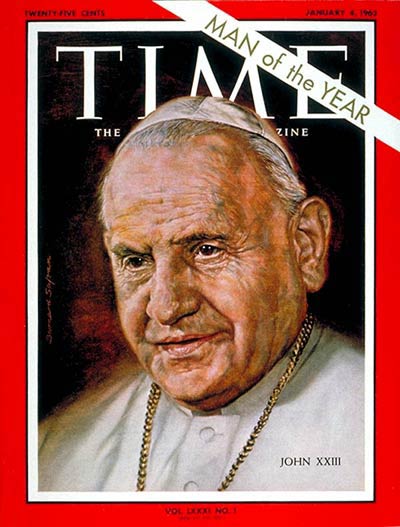Just about everyone loves Mother Teresa. She gave her life to serving the poorest of the poor of God in India. She would go into the streets and find people who were dying, bring them to her a home for the dying, care for them, bathe them, and bury them. She would beg people for food, clothing, buildings, whatever it took to help the poor. She began the Missionaries of Charity religious order, which includes sisters, brothers, and priests. She went all over the world speaking on behalf of the poor and speaking out against the evil of our age, abortion: “It is a poverty to decide that a child must die so that you may live as you wish.”
Blessed Teresa had difficulties as well. She lived a "dark night of the soul." God allowed her to be deprived of the consolation of the sense of God's presence in her life. She was happy, not because she "felt" happy, but because she knew that God loved her, regardless of her feelings. She knew real joy in service to God through her dedication to those who were loved by no one else except God and her.
We have difficulties in our lives when we don't "feel" happy. Suffering is a part of life. God did not promise to remove suffering from our lives once we committed ourselves to him. Rather God promises us the joy of everlasting love. Feelings are fleeting and they change. Joy is an understanding and acceptance of the presence of God in our lives. That is the true happiness that Mother Teresa knew, even though she did not feel it. This can be our true happiness as well.
 *
*


